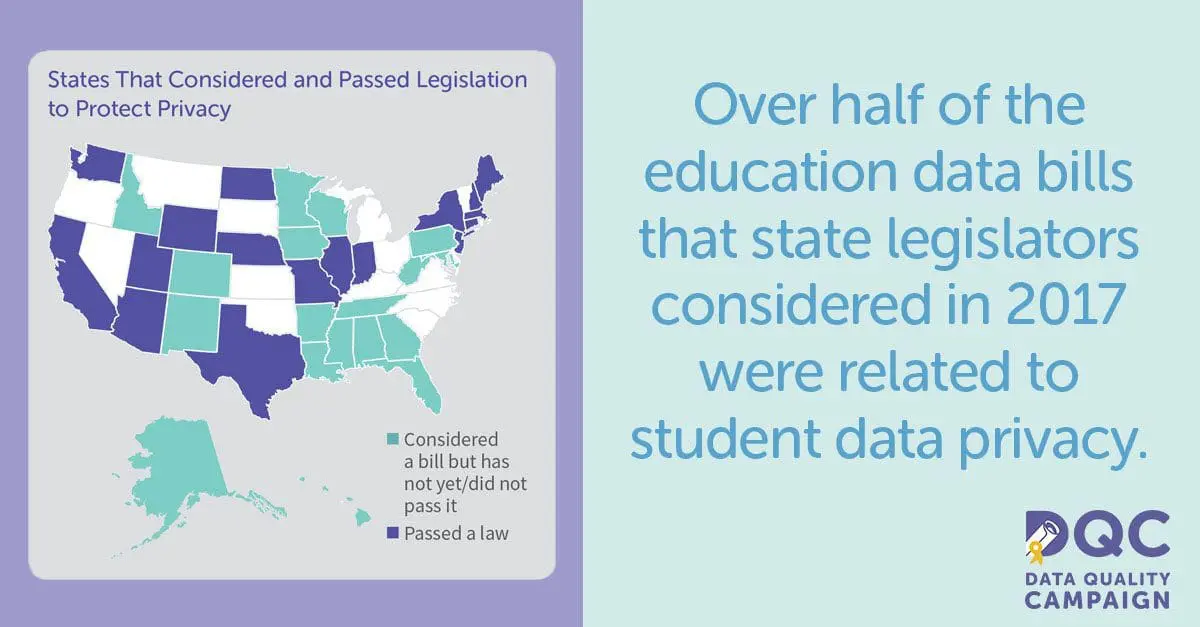Most 2017 state legislative sessions have wrapped up, meaning we now get to take a look back at the education issues that were on legislators’ minds this year. As in the last couple of years, using data to better understand and improve education was a clear priority: in 2017, state legislators considered 183 bills and passed 53 new laws on how they collect, use, and protect student data.
First, the big news: as in past years, student data privacy has been a big legislative theme this year. In fact 18 of these 26 new laws addressed student privacy. If you’re counting, this year’s additions mean that since 2013, 49 states have introduced 503 student privacy bills, and 41 states have passed 94 new laws. That’s a lot!
While much of the state data legislation this year focused on privacy, states also passed new laws addressing some of the biggest challenges in education today—like how to give families information about schools that they can actually use, or how to explore and address education inequity. For example:
- Connecticut passed a law that helps prospective students and their families make more informed higher education and career choices by creating a new public report about how students fare after graduating from different colleges and programs.
- Maryland passed a law to get better information about how discipline practices like seclusion and restraint are applied to different groups of students. The law also asks districts to use this data to revisit their disciplinary practices and how teachers are taught to use them.
However, despite these bright spots on using and reporting data, legislators simply have not given the same attention to ensuring that parents and teachers get the data they need on their own children and students. Just six bills focused on giving teachers or parents access to data, and only seven bills included training for educators on how to use data to support student learning.
And parents want data! In a recent national survey, 91 percent of parents say they rely on data about their child like test scores and grades to understand how they’re doing. And 95 percent of parents want their child’s teacher to use data related to their child’s progress in school to help personalize his or her learning experience.
The amazing opportunities for 2018 are clear. Over the past several years, states have made enormous progress in making education data useful and secure. Now they can continue to build on this incredible work by ensuring data not only informs policy, but empowers those closest to students.
Want to know more about the bills that did empower those closest to students? Or are you interested in other state legislative trends from this year? You’re in luck – this year’s state legislative summary is available now: DQC’s Education Data Legislation Review: 2017 State Activity.


